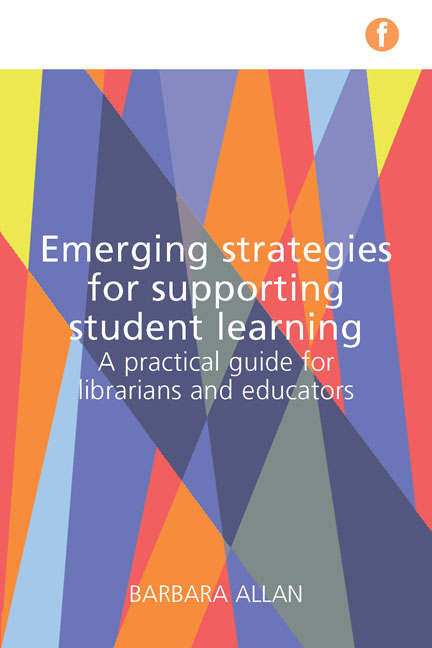Book contents
- Frontmatter
- Contents
- Figures and tables
- Acknowledgements
- 1 Introduction
- 2 Working with students
- 3 Digital literacies
- 4 Employability
- 5 Approaches to learning and teaching
- 6 Learning and teaching activities
- 7 Making it happen
- 8 Designing face-to-face, blended and online courses
- 9 Delivering learning experiences
- 10 Evaluation of learning and teaching activities and courses
- 11 Lifelong professional development
- Index
- Frontmatter
- Contents
- Figures and tables
- Acknowledgements
- 1 Introduction
- 2 Working with students
- 3 Digital literacies
- 4 Employability
- 5 Approaches to learning and teaching
- 6 Learning and teaching activities
- 7 Making it happen
- 8 Designing face-to-face, blended and online courses
- 9 Delivering learning experiences
- 10 Evaluation of learning and teaching activities and courses
- 11 Lifelong professional development
- Index
Summary
Introduction
Employability is high on the agenda for colleges and universities, and there is a recognition that students and graduates need a wide range of professional skills, including digital and information skills, in order to be successful on their degree course and as they enter the wider world of work.
Traditionally, the library and information profession has always ‘owned’ information literacy, but recently a broader concept of digital literacies has developed. This has resulted in new ways of thinking and working within higher education as different professional groups, e.g. library and information workers, media support workers, IT trainers and careers professionals, all have a stake in this important area. At the same time, library and information workers are engaging in areas which were traditionally outside their remit, such as student employability.
In recent years, there has been much research and many practical developments on supporting student learning in the digital age. This is explored in this chapter by looking at digital literacies, information literacies including metaliteracy, and digital badges. Chapter 4 explores the concept of employability and responses of contemporary academic libraries to students’ employability.
Digital literacies in practice
Rapid changes in technology such as the rise in social media and the development of accessible media have an impact on learning and teaching, and graduate employability in universities. At one time, the institutional virtual learning environment and e-mails were the main communication channels in the learning and teaching process, and academic administration. Nowadays, there is a much more complex situation as staff and students in colleges and universities use many different systems and technologies to do their work, such as e-mail, text messages, Twitter, LinkedIn, YouTube, Flickr, SlideShare, Pressi, Pinterest, Facebook, WhatsApp, Instagram and Tumblr, as well as the institutional virtual learning environment.
Josefsson et al. (2015) have carried out research into students’ use of social media and they identify three roles: the educational role, the professional role and the private role. They consider the differences between social media usage by students, and suggest that colleges and universities have a clear role in educating students to use social media as part of their studies and in preparation for work. Graduates also use many different systems in their work, and employers expect them to be able to use them to a professional level.
- Type
- Chapter
- Information
- Emerging Strategies for Supporting Student LearningA Practical Guide for Librarians and Educators, pp. 33 - 48Publisher: FacetPrint publication year: 2016
- 1
- Cited by



